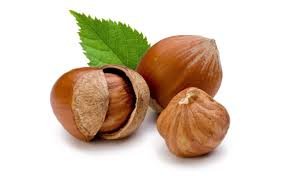The Largest Hazelnuts Producing Country in the World
Introduction to Hazelnut Production
Hazelnuts are a popular nut used in various culinary applications, ranging from confectionery to baking. They are known for their rich flavor and nutritional benefits. The production of hazelnuts is a significant agricultural activity in several countries, but one stands out as the largest producer globally.
Turkey: The World’s Top Producer
Turkey holds the title of the largest hazelnut-producing country in the world. The country dominates the global market, contributing a substantial share of the world’s hazelnut supply. The favorable climate, including mild winters and warm summers, along with the fertile soil in Turkey’s Black Sea region, creates ideal conditions for hazelnut cultivation. Turkey’s extensive hazelnut orchards and efficient production processes enable it to maintain its leading position in the industry.
Impact on Global Markets
Turkey’s dominance in hazelnut production has a significant impact on global markets. As the largest exporter, Turkey influences prices and availability of hazelnuts worldwide. The country’s production levels affect the supply chain, impacting industries that rely on hazelnuts, such as chocolate and baked goods. The fluctuations in Turkish hazelnut production can lead to variations in global market prices and availability.
Economic and Social Implications
The hazelnut industry plays a crucial role in Turkey’s economy, providing employment to thousands of people. The cultivation, processing, and export of hazelnuts contribute significantly to the livelihoods of many Turkish farmers. The industry also has social implications, as it supports rural communities and contributes to regional development.
Challenges and Future Outlook
Despite its leading position, Turkey faces challenges in the hazelnut industry, including climate change and competition from other producers. The Turkish government and industry stakeholders are working to address these challenges through innovative agricultural practices and diversification strategies. The future outlook for Turkish hazelnut production will depend on the country’s ability to adapt to changing conditions and maintain its competitive edge in the global market.

Why This News is Important
Global Food Supply and Trade
Understanding Turkey’s role as the largest hazelnut producer is essential for comprehending global food supply dynamics and trade patterns. Turkey’s significant share in the global hazelnut market means that its production levels can influence global prices and availability of hazelnuts. For students preparing for government exams, this information highlights the interconnectedness of global agriculture and trade.
Economic Significance
The economic impact of Turkey’s hazelnut production extends beyond the country’s borders. It affects industries worldwide, particularly those involved in food manufacturing. Knowledge of this economic significance is crucial for understanding international trade and economic policies related to agricultural products.
Cultural and Social Aspects
Hazelnut production has cultural and social implications in Turkey, affecting rural communities and regional development. This aspect of the news provides insights into how agricultural industries can shape social structures and contribute to community welfare.
Historical Context
Early Cultivation and Development
Hazelnut cultivation has a long history, with evidence of its use dating back to ancient civilizations. The Black Sea region, including modern-day Turkey, has been a significant center for hazelnut production for centuries. The development of hazelnut orchards in Turkey can be traced back to traditional agricultural practices that have evolved over time.
Growth of the Industry
In the 20th century, Turkey’s hazelnut industry experienced significant growth due to advancements in agricultural techniques and increased global demand. The country’s strategic investments in hazelnut production infrastructure have solidified its position as the world’s leading producer.
Modern Challenges and Innovations
In recent years, Turkey has faced challenges such as climate change and market fluctuations. The industry has responded with innovations in cultivation and processing to maintain its competitive advantage. Understanding this historical context provides valuable insights into the evolution of Turkey’s hazelnut industry and its current status.
Key Takeaways from “Largest Hazelnuts Producing Country in the World”
| Serial Number | Key Takeaway |
|---|---|
| 1 | Turkey is the largest hazelnut-producing country globally. |
| 2 | The Black Sea region in Turkey provides ideal conditions for hazelnut cultivation. |
| 3 | Turkey’s hazelnut production impacts global prices and availability of hazelnuts. |
| 4 | The hazelnut industry is a significant contributor to Turkey’s economy and rural employment. |
| 5 | Challenges such as climate change are being addressed through innovative practices in Turkey. |
Important FAQs for Students from this News
1. What is the significance of Turkey’s hazelnut production in the global market?
Turkey is the largest producer of hazelnuts globally, impacting both prices and supply in the international market. The country’s significant production share influences global trade patterns and the availability of hazelnuts for various industries, including confectionery and baked goods.
2. How does Turkey’s climate contribute to its leading position in hazelnut production?
The Black Sea region of Turkey provides an ideal climate for hazelnut cultivation, characterized by mild winters and warm summers. This favorable weather, combined with fertile soil, supports the large-scale production of high-quality hazelnuts.
3. What economic role does the hazelnut industry play in Turkey?
The hazelnut industry is a major economic driver in Turkey, contributing significantly to the country’s GDP. It supports thousands of jobs, particularly in rural areas, and plays a crucial role in the livelihoods of Turkish farmers and regional development.
4. What challenges are currently facing Turkey’s hazelnut industry?
The industry faces several challenges, including climate change and competition from other hazelnut-producing countries. Turkey is addressing these issues through innovative agricultural practices and efforts to enhance production efficiency.
5. How has the hazelnut industry evolved in Turkey over the years?
Historically, Turkey’s hazelnut industry has evolved from traditional cultivation practices to modern agricultural techniques. Investments in infrastructure and technology have strengthened the country’s position as the world’s leading hazelnut producer.
Some Important Current Affairs Links
















